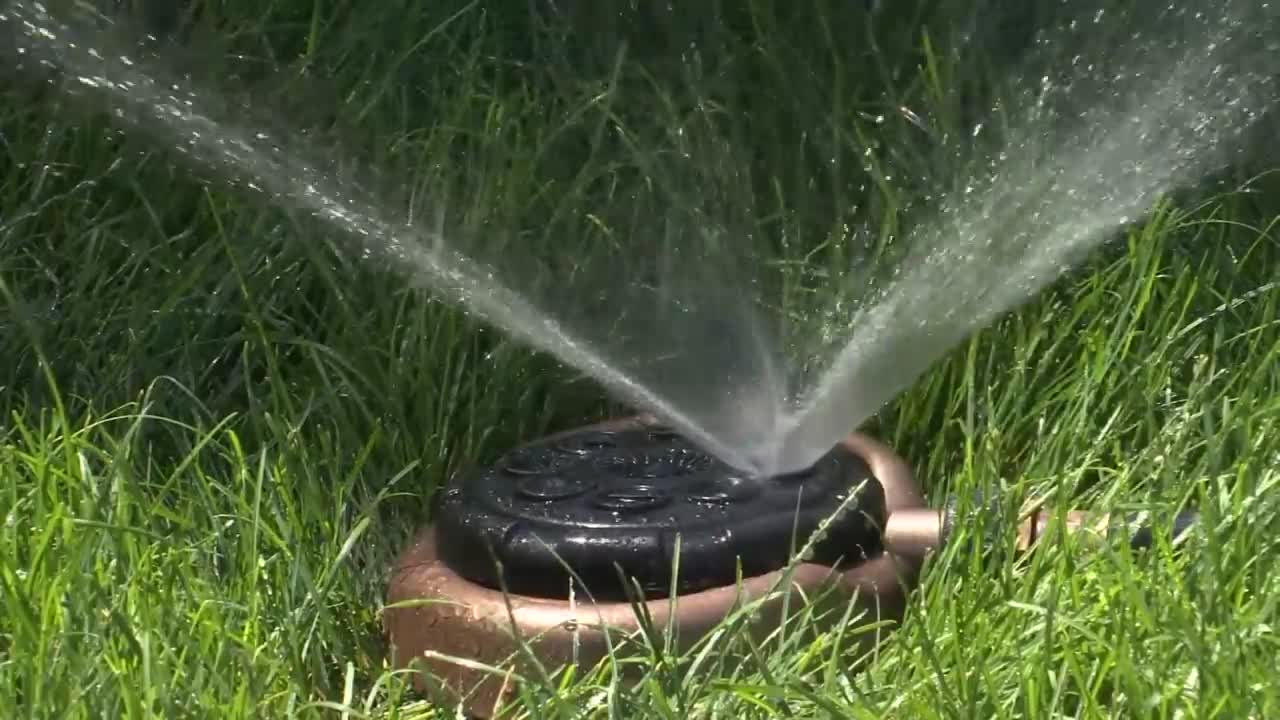BILLINGS — Record high temperatures are forecast to hit Billings again this week, and with that comes concerns ranging from exposure to the condition of air conditioning units.
But, there’s a worry from public works officials about the city’s water usage during the scorching temperatures, and a plea from water engineers for residents to conserve when you think your lawn is getting dry and brown.
“We've seen unprecedented numbers for this time of year of water demand on our system,” said engineer Louis Engels Tuesday.
He walked through a massive filter facility at the water department on Belknap Road in Billings, where giant blue pipes were funneling water from the Yellowstone River to homes as fast as they can. However, he says this summer, the system is working harder than it should.

Engels says when sprinklers turn on around the city in the summertime heat, water usage is high, "it’s definitely an issue."
He noted peak demands are not normally seen in June and instead in July or August, but this year is another story because of the already record temperatures experienced in the month of June alone. The Yellowstone River is currently running only 42% of normal for this time of year. Engels says that may mean lower flows in August and September.
The city water treatment plant has a capacity of 60 million gallons per day. “And we're consistently hitting above 50 million gallons per day right now,” Engels said.
The capacity is equivalent to a pool of water 140 feet high over the surface of a football field, but the current usage of 50 million gallons per day is equivalent to a pool of water 116 feet high over the surface of a football field, according to Engels.

He says this is almost four times above normal use during the winter. So, Engels is hoping residents will try to conserve and even perhaps invest in drought-resistant landscaping, "if we could do a better job of being more efficient with our outdoor irrigation, that would go a long way to help."
He says residents should think about when they're turning on sprinklers and for how long.
“If we could get people to space it more throughout the night, that would really help us,” he said. “I wouldn't recommend watering during the heat of the day. Obviously, that doesn't make sense.”
Water operators see a surge at around 2 a.m. until 6 a.m. every Monday, Wednesday, and Friday, according to Engels. He suggests residents alter their days to Tuesday, Thursday, Saturday, and Sunday and perhaps run their water in the overnight hours.

“Our pump stations and reservoirs are sized to meet the peak hourly demand so the more we can shave the peak the less cost it will be for additional infrastructure,” he said.
As of now, he says there’s no plan to place restrictions or official recommendations on water users, but that could all change if additional record days are ahead.
“I guess as things go through July and August we'll have to see if that's something that needs to be implemented, but it's being considered,” said Engels.
Engels encourages residents to take time to think about conservation especially in the West End because that’s where increase demand is and there’s been some trouble in keeping reservoirs full, even when pump stations are running at capacity during the morning hours.





